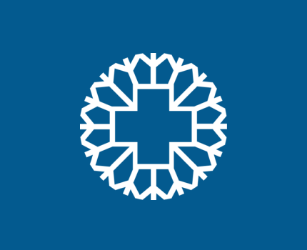Since 1994, The Medical City’s Clinical Neurophysiology Laboratory provides diagnostic neurophysiologic testing like Electroencephalography, Electromyography and Nerve Conduction Study, Evoked Potentials, and related clinical services for adults and children undergoing neurologic evaluation. Diagnostic studies are performed by Neurophysiology board-certified specialists and Electroneurodiagnostic Technicians. Examination results are generally available 24 hours after the examination for in-patients and within 48 hours for out-patients.
Services
Neurophysiology Laboratory
- Diagnostic services – the unit performs several basic tests that evaluate the integrity and function of specific parts of the nervous system.
- Electroencephalography (EEG) – an examination of spontaneous brain activity by recording the summation of various electrical potentials generated by the brain as captured by electrodes located over specific parts of the head.
- Routine EEG – a clinical EEG recording that typically lasts 20 to 30 minutes (including preparation time) and usually involves recording from scalp electrodes. This is used to distinguish epileptic seizures from other types of spells such as psychogenic non-epileptic seizures, syncope (fainting), sub-cortical movement disorders and migraine variants.
- Sleep and Awake/Sleep Deprived EEG – a clinical EEG with asleep and awake recording. This test takes about 45 to 60 minutes.
- Electromyography and Nerve Conduction Studies (EMG/NCV)– an examination of nerve and muscle activity. Nerve Conduction Velocity involves the use of surface recording electrodes attached to the part or nerve to be tested. The Technician or Electromyographer then delivers small electrical pulses to the nerve and the responses obtained are recorded. In the electromyography part, the Electromyographer uses a fine disposable needle and briefly inserts this in the muscles to be tested and record the response. This procedure for upper or lower extremities takes about 30 to 40 minutes and EMG-NCV of both upper and lower extremities takes about 45 to 60 minutes. This test is indicated in patients suspected to have:
- Peripheral Neuropathy (i.e. carpal tunnel syndrome, diabetic polyneuropathy, etc.)
- Myopathy or Muscle Disease
- Cervical or Lumbar Radiculopathy
- Brachial Plexopathy
- Motor Neuron Disease
- Evoked Potentials (EPs)– are examinations of brain activity related to sensory stimulation namely Visual-evoked Potentials (VEPs) and Somatosensory-evoked Potentials (SSEPs). The test takes about 45 to 60 minutes
- Visual Evoked Response (VER) test - can diagnose problems with the optic nerves that affect sight. Electrodes are placed along the scalp. The patient is asked to watch a checkerboard pattern flash for several minutes on a screen and the electrical responses in the brain are recorded.
- Somatosensory Evoked Response (SSER) test - can detect problems with the spinal cord as well as numbness and weakness of the extremities. For this test, electrodes are attached to the wrist, the back of the knee, or other locations. A mild electrical stimulus is applied through the electrodes. Electrodes on the scalp then determine the amount of time it takes for the current to travel along the nerve to the brain.
- Repetitive Nerve Stimulation Study (RNS) – an examination of the junction between the peripheral nerve and muscle. This involves the use of recording electrodes attached to a muscle in the hand, a muscle in the face and a muscle in the shoulder. The Technician or Electromyographer then delivers small electrical pulses to the nerve and records the responses at a rate of 3 to 10 electrical pulses per minute with the patient at rest and after a brief exercise of the tested muscle. The responses obtained are recorded. The test takes about 45 to 60 minutes. This is indicated if a patient is suspected to have Myasthenia Gravis, Lamber-Eaton Myasthenic syndrome.
- Single Fiber EMG (SFEMG) – an examination of the junction between the peripheral nerve and muscle. The Electromyographer uses a single fiber needle inserted in the muscles to be tested (usually a muscle in the arm or face) while the patient voluntarily contracts the muscle. The responses obtained are recorded. The test takes about 90 to 120 minutes. This is indicated if the patient is suspected to have Myasthenia gravis, Lamber-Eaton Myasthenic syndrome.
Monitoring Services
- Intra-operative Monitoring - This service, in collaboration with the Department of Orthopedics, Neurosurgery and Anesthesia, is important to patients undergoing neurosurgical procedures that place the brain, spinal cord, or nerves at risk. Intraoperative neurological monitoring consists of EPs or EMGs performed during surgical procedures. These techniques provide an assessment of the function of the nervous system during a surgical procedure, and help the surgeon minimize the risk of damage.
- Long Term Monitoring Video EEG
- 2 hours and up to less than 4 hours
- 4 hours
- 12 hours
- 24 hours
- Succeeding Hour (for additional hours)
- Bedside Monitoring Video EEG
- 1 hour monitoring
- 2 hours monitoring
Our Team
Dr. Edmundo G. Saniel – Unit Head, Clinical Neurophysiology Laboratory
Neurophysiology Medical Staff
Dr. Maria Anna Berroya
Dr. Ester Bitanga
Dr. Valmarie Estrada
Dr. Katerina Tanya Gosiengfiao
Dr. Anthony Piano
Dr. Teresita Rabanal
Dr. Ignacio Rivera
Dr. Ma. Luisa Gwenn Pabellano-Tiongson
Dr. Jose Paciano Baltazar Reyes
Dr. Edmundo G. Saniel
Dr. Mark Anthony Sta. Maria
Neurophysiology Non-Medical Staff
Edmongino J. Camacho – Manager, Ancillary Services
Marie Ju Anne G. Villasis – Assistant Manager
Jasmine C. Relosor – Administrative Clerk
Electroneurodiagnostic Technicians
Maribel L. Anglo
Armel G. Mendoza
Aileen L. de Jesus
Erickson P. de Jesus
Jennibie C. Torres
